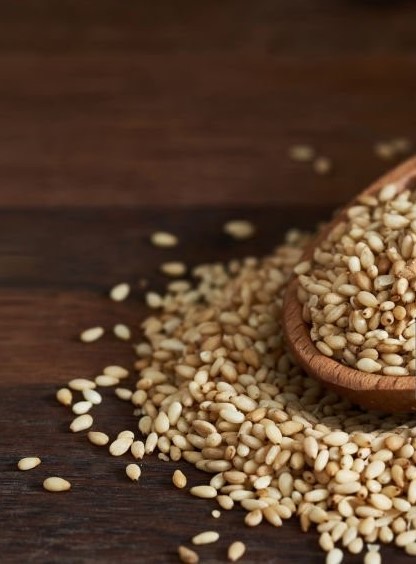
Sesame Seed
Sesame seeds are an incredibly versatile ingredient used across many culinary traditions worldwide. These tiny, oil-rich seeds come from the Sesamum indicum plant, which is believed to have originated in Asia or East Africa. The history of sesame seeds dates back to ancient times, with evidence of their use as grain flour by the ancient Egyptians. Their nutritional value and unique flavor profile make them a popular addition to a wide variety of dishes, ranging from savory to sweet.
Sesame seeds are highly nutritious and are a good source of healthy fats, protein, fiber, vitamins (such as B vitamins and vitamin E), and minerals (including calcium, magnesium, and iron).
Sesame seeds are also used to create snacks such as sesame bars and snaps, held together with sweeteners like honey or sugar.

Benefits
Sesame seed often considered a superfood and have been used in various cuisines and traditional medicines for centuries.
- Sesame seeds are an excellent source of calcium and magnesium, both of which are crucial for maintaining strong and healthy bones
- The fiber content in sesame seeds supports healthy digestion and regular bowel movements.
- The vitamin E in sesame seeds can contribute to healthy skin by protecting it from UV damage and promoting cell repair and regeneration.






